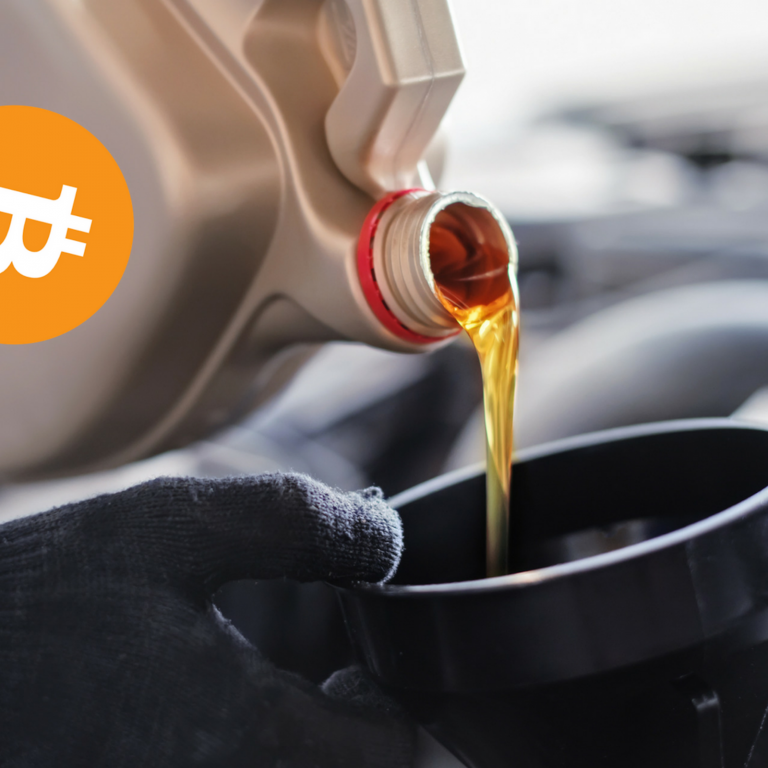Synthetic Bitcoin Is 100x More Lethal Than the Real Thing
source: Bitcoin News
2018. Aug. 28. 01:45

Derivatives trading isn’t new, but it’s been enjoying a renaissance of late. As the cryptocurrency market has traded sideways, traders have upped the leverage and rushed to swap BTC derivatives that promise greater risk and reward. While platforms like Bitmex and Deribit have profited from the boom in synthetic assets, many traders have been left high and dry.
Also read: Hydroelectric Dam in New York Repurposed as Crypto Mining Farm
Derivatives Trading Is a Hazardous Pursuit With Little Margin for Error
Bitcoin investing is often portrayed as navigating a bumpy road, with each trough and pothole invoking a rallying cry to “Hodl” and persevere till the finish line. If the analogy is accurate, then derivatives trading is like speeding down that road on a motorbike at 160 mph. One false move – a flash crash here; a DDoS there – and it’s game over. Hit a pothole as a hodler and all you’ll lose is some USD off your portfolio. Do the same on 100x leverage and you’ll be liquidated on the spot. Trading synthetic assets, particularly on high leverage, is not for the faint-hearted. Nor is it for the inexperienced.
A handful of Bitmex traders have gotten very rich indeedThere are three types of synthetic options available to bitcoin traders: futures, derivatives, and margin. Some platforms, such as Bitmex, Whaleclub, and Deribit, offer all three. Traditional exchanges such as Bitfinex, Hitbtc, and Poloniex offer margin trading only, and then there’s the likes of Okcoin which offers futures and margin but no derivatives. Here’s how the three options play out:
Futures: A type of derivative contract that can include leverage of up to 100x, futures are an agreement to buy or sell an asset – in this case synthetic BTC – at a future date for a certain price.
Derivatives: A type of contract whose value is derived from that of another asset. On sites like Bitmex, it’s possible to trade options, swaps, and futures – all types of derivatives – with the possibility of higher returns thanks to leverage which multiplies the potential profit or loss, depending on how the trade goes.
Margin: A type of trade in which money is borrowed from a broker with the expectation that they will be repaid upon generating a profit. A minimum level of equity must be maintained on the platform, typically around 30%, to cover losses. If the balance falls below this, additional funds must be covered to account for the shortfall.
Derivatives Can Be Dangerous
Crypto Twitter and Telegram channels are filled with tales of woe from leveraged traders who got stopped out and had their position liquidated. If conventional trading is cocaine-like in its addictiveness, high leverage is crack cocaine. One of the biggest gripes for traders, particularly on Bitmex, is those unexpected events that can wreck even the best laid plans. Even experienced traders are taking a huge risk, over and above those associated with bitcoin’s ‘natural’ movements. DDoS attacks, downtime, log-in errors, and sudden price spikes have caused traders to lose everything. When such events conspire, there is little recourse, for complaining to the Seychelles-registered Bitmex will get you nowhere.
As discontent with Bitmex has grown, Deribit has welcomed traders with open arms. It professes to offer faster trade execution than Bitmex, but with only 50x leverage versus its rival’s 100x. Bitmex is still the whale in the derivatives market by some distance, recording 24-hour volume of 355k BTC versus Deribit’s 5k. Exchangewar.info notes Deribit’s lower fees, and there is also less controversy surrounding its margin trading – for now at least. No matter how reputable the platform traders choose, or how good its uptime, it should be acknowledged that derivatives trading is a dangerous business in which a handful of pros profit massively and the remainder are lucky to walk away with their initial stake.
Do you think platforms like Bitmex can be trusted, or do they introduce additional risks over and above those to be expected from trading derivatives? Let us know in the comments section below.
Images courtesy of Shutterstock, and Twitter.
Need to calculate your bitcoin holdings? Check our tools section.
The post Synthetic Bitcoin Is 100x More Lethal Than the Real Thing appeared first on Bitcoin News.





